
A mathematician is someone who uses an extensive knowledge of mathematics in their work, typically to solve mathematical problems. Mathematicians are concerned with numbers, data, quantity, structure, space, models, and change.
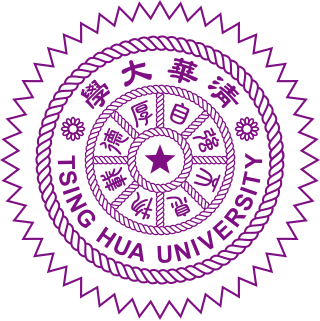
National Tsing Hua University is a public research university in Hsinchu City, Taiwan.
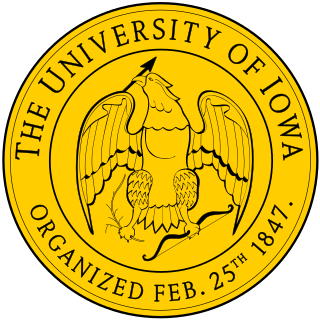
The University of Iowa is a public research university in Iowa City, Iowa, United States. Founded in 1847, it is the oldest university in the state. The University of Iowa is organized into 12 colleges offering more than 200 areas of study and seven professional degrees.

Fang Lizhi was a Chinese astrophysicist, vice-president of the University of Science and Technology of China, and activist whose liberal ideas inspired the pro-democracy student movement of 1986–87 and, finally, the Tiananmen Square protests of 1989. Because of his activism, he was expelled from the Chinese Communist Party in January 1987. For his work, Fang was a recipient of the Robert F Kennedy Human Rights Award in 1989, given each year to an individual whose courageous activism is at the heart of the human rights movement and in the spirit of Robert F. Kennedy's vision and legacy. He was elected an academician of the Chinese Academy of Sciences in 1980, but his position was revoked after 1989.

Michel Gustave Édouard Mayor is a Swiss astrophysicist and professor emeritus at the University of Geneva's Department of Astronomy. He formally retired in 2007, but remains active as a researcher at the Observatory of Geneva. He is co-laureate of the 2019 Nobel Prize in Physics along with Jim Peebles and Didier Queloz, and the winner of the 2010 Viktor Ambartsumian International Prize and the 2015 Kyoto Prize.

Allan Rex Sandage was an American astronomer. He was Staff Member Emeritus with the Carnegie Observatories in Pasadena, California. He determined the first reasonably accurate values for the Hubble constant and the age of the universe.
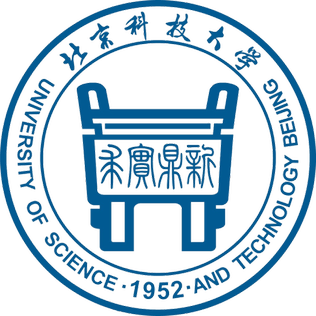
The University of Science and Technology Beijing, formerly known as Beijing Steel and Iron Institute (北京钢铁学院) before 1988, is a national key university in Haidian District, Beijing, China. USTB's metallurgy and materials science programmes are highly regarded in China. It is a Chinese state Double First Class University Plan university, identified by the Ministry of Education of China.

The University of Hamburg is a public research university in Hamburg, Germany. It was founded on 28 March 1919 by combining the previous General Lecture System, the Hamburg Colonial Institute, and the Academic College. The main campus is located in the central district of Rotherbaum, with affiliated institutes and research centres distributed around the city-state. Seven Nobel Prize winners and one Wolf Prize winner are affiliated with UHH.
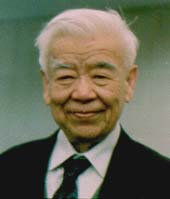
Wu Ta-You was a Chinese physicist and writer who worked in the United States, Canada, mainland China and Taiwan. He has been called the Father of Chinese Physics.

Lu Ping, born in Kaohsiung in 1953, is a Taiwanese writer who writes under the pen name “Ping Lu”. Her writing encompasses a broad range of genres, including novels, essays, poems, commentary, and theater plays. She is also known in the Chinese-language world for her critique of social phenomenon, ranging from cultural development to gender issues and human rights. Over the past two decades, Ms. Lu has successfully established herself as a prominent novelist, columnist, and commentator in Taiwan.
Guillermo Gonzalez is an astronomer, a proponent of the pseudoscientific principle of intelligent design, and a research scientist at the University of Alabama-Huntsville. He is a senior fellow of the Discovery Institute's Center for Science and Culture, considered the hub of the intelligent design movement, and a fellow with the International Society for Complexity, Information and Design, which also promotes intelligent design.

William Theodore de Bary was an American Sinologist and scholar of East Asian philosophy who was a professor and administrator at Columbia University for nearly 70 years.
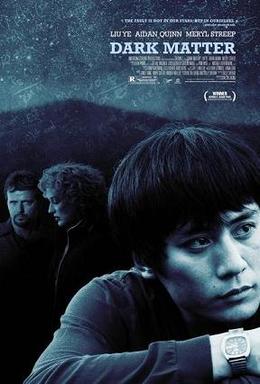
Dark Matter is a 2007 American drama film and the first feature film by opera director Chen Shi-zheng, starring Liu Ye, Aidan Quinn and Meryl Streep. Liu Ye plays a young scientist whose rising star must confront the dark forces of politics, ego, and cultural insensitivity. The film is loosely inspired by the true story of Gang Lu, a former graduate student who killed four faculty members and one student at the University of Iowa in 1991. However, the film’s story has substantial differences in plot and character motivation.

Edwin George "Ted" Pulleyblank was a Canadian sinologist and professor at the University of British Columbia. He was known for his studies of the historical phonology of Chinese.
Jedidah C. Isler is an American astrophysicist, educator, and an active advocate for diversity in STEM. She became the first African-American woman to complete her PhD in astrophysics at Yale in 2014. She is currently an assistant professor of astrophysics at Dartmouth College. Her research explores the physics of blazars and examines the jet streams emanating from them. In November 2020, Isler was named a member of Joe Biden's presidential transition Agency Review Team to support transition efforts related to the National Aeronautics and Space Administration.

The University of Cambridge is a collegiate public research university in Cambridge, England. Founded in 1209 and granted a royal charter by King Henry III in 1231, Cambridge is the second-oldest university in the English-speaking world and the world's fourth-oldest surviving university. The history and influence of the University of Cambridge has made it one of the most prestigious universities in the world. Numerous scholarships, prizes, honors, and awards specific to the university are awarded to prospective or current students.
Bei Zeng is a quantum information theorist at the Hong Kong University of Science and Technology, where she is a professor of physics, and director of the IAS Center for Quantum Technologies. As well as quantum information, her research interests include quantum computing and quantum error correction.














